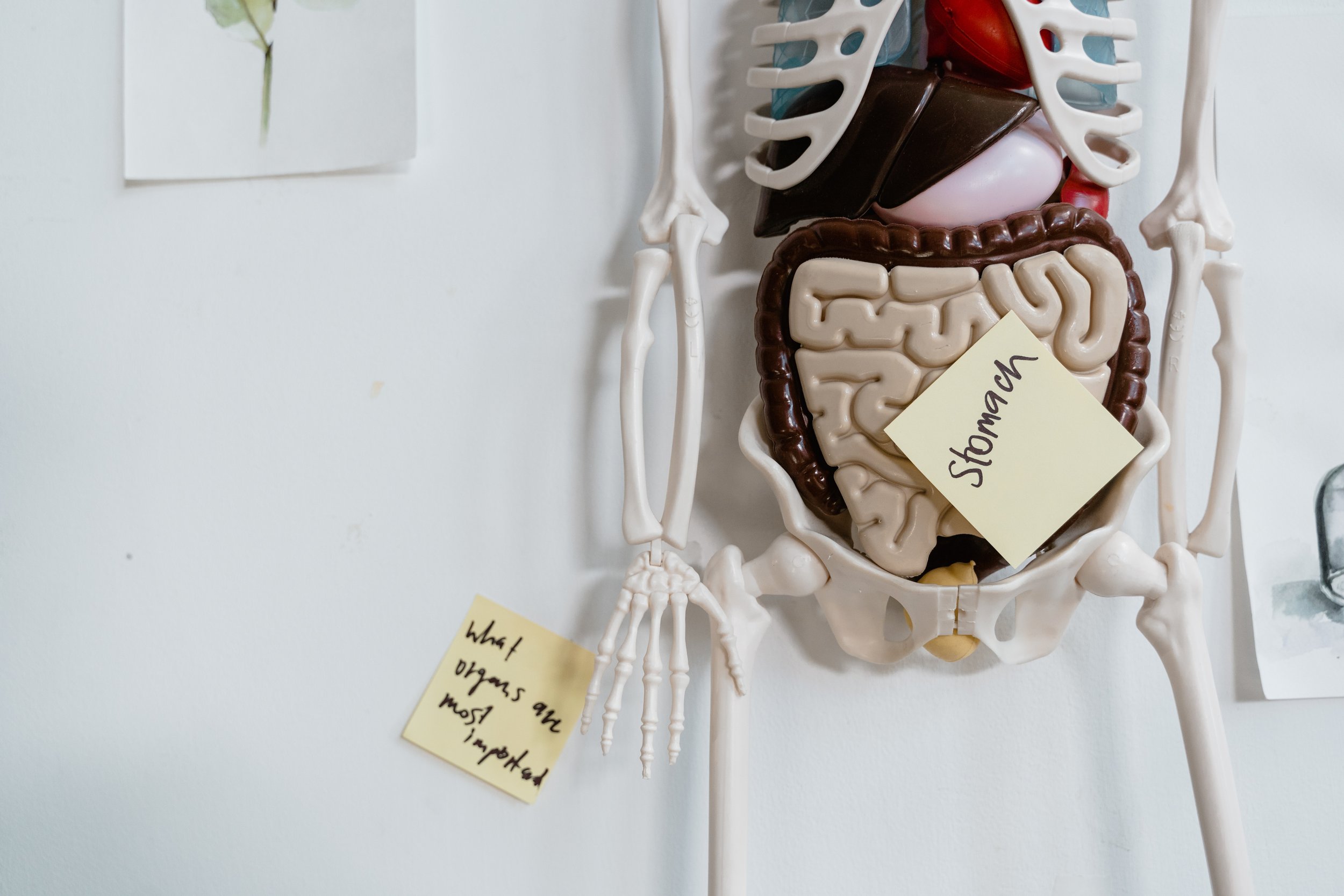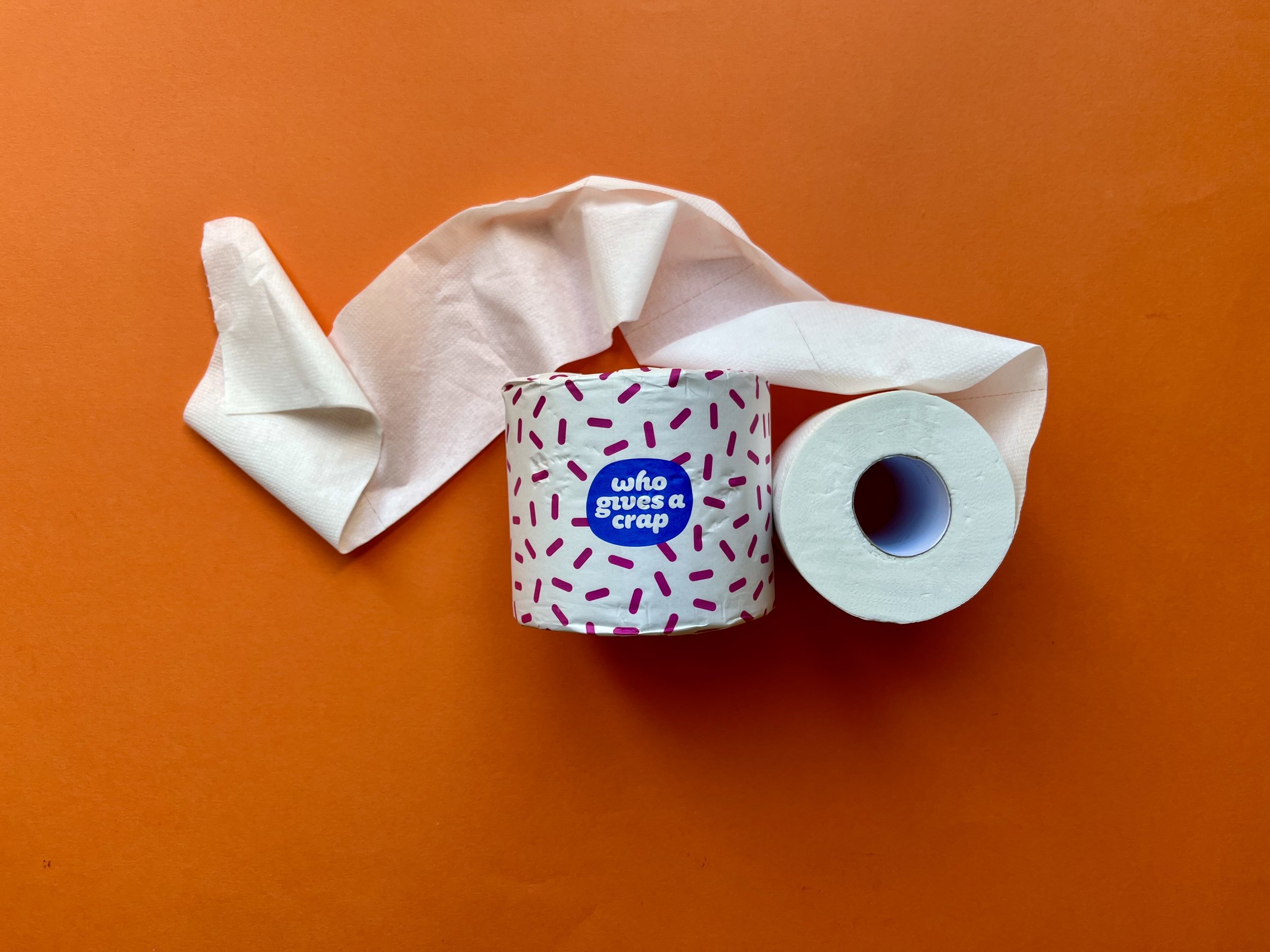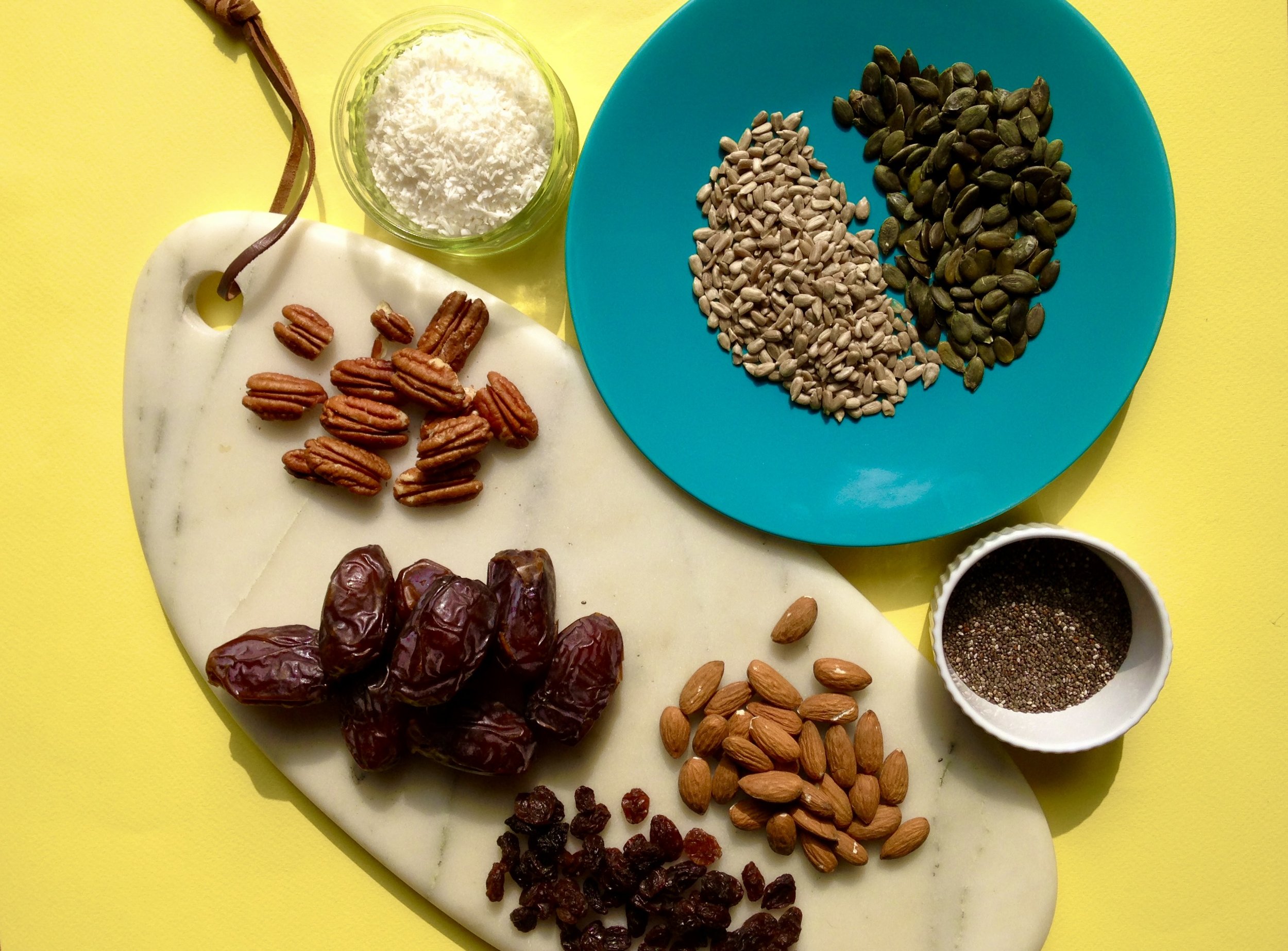Digestion Issues
Yes, yet another symptom of menopause is digestive problems!
In those dim, and increasingly distant days, when you felt bloated during your period, your stomach and intestines emptied at a slower pace in the latter part of your menstrual cycle - and this same digestive sluggishness can happen during perimenopause.
What causes digestive disorders in menopause?
Oestrogen helps keep the stress hormone, cortisol, in check. But when oestrogen runs low, cortisol increases, raising both blood pressure and blood sugars and slowing down digestion. The result: menopause constipation, diarrhoea, bloating, indigestion, acid reflux, painful abdominal cramps, weight gain, flatulence and nausea. Sorry, the other bad news is that existing conditions such as Irritable Bowel Syndrome (IBS) can be exacerbated by menopause.
The gut microbiome and menopause
An article in the British Medical Journal (BMJ), reported that “approximately 100 trillion micro-organisms exist in the human gastrointestinal tract”, and the microbiome is now best thought of as “a virtual organ of the body.”
This “organ” is not only key to our digestion, it also plays an important role in our immunity, metabolism, inflammation, mood, cognition, and performance. Therefore hormonal fluctuations in menopause can impact our gut microbiome.
As our gut microbiome is involved in digestion, it helps us get the nutrients we need. Optimising our diet and nutrition during perimenopause and menopause is key.
What type of diet helps menopause digestive problems?
Fibre is a key nutrient for a healthy microbiome, but that’s just the start! For more in-depth info read our related article: Diet, nutrition and lifestyle changes to help menopause digestive issues.
What natural treatments help with menopause digestive disorders?
Try a Registered Nutritional Therapist
If you have digestive issues you may find that you need to talk to a Registered Nutritional Therapist. They will assess your diet and develop a personal nutrition programme to provide a combination of expert nutritional advice with coaching support to improve symptoms. Registered Nutritional Therapist and author, Jackie Lynch from WellWellWell, specialises in menopause nutrition. Learn from a registered dietitian how beneficial fermented foods are for a healthy functioning digestive system and good gut health in menopause.
Acupuncture & Traditional Chinese medicine
Traditional Chinese medicine and/or acupuncture treats the person as a whole rather than by specific symptom. Menopause issues are seen as a sign of imbalance in yin and yang. Digestive problems associated with menopause will be looked at as part of your kidney function. When the kidneys are low in yin and yang, the body either lacks fluid, becomes dry and overheats or may have too much fluid.
Natural remedies for menopause digestive issues
These supplements may help with the production of oestrogen, which could improve the efficiency of your gastrointestinal function.
Dong Quai*
Liquorice root (though not if you have high blood pressure)
Siberian Ginseng
Omega-3 if you’re not getting it from your diet (rich in DHAs, check the label)
Natural supplements can have side effects, impact on any medications you are taking, and shouldn’t be taken long-term.
*Dong quai may affect blood clotting. Discuss with your doctor, especially if you have any form of surgery coming up.
Medical treatment for digestion problems in menopause
If you are suffering from constipation, consider consulting a Women’s Health Physio. Too much straining could result in further problems such as prolapse. Women’s Health Physio Christien Bird runs an online Menopause MOT service specifically developed for menopausal women.
Talk to your doctor about your options if lifestyle and diet changes don’t do the trick.
Does HRT help digestive issues?
HRT addresses the hormone imbalance, it may improve IBS-like symptoms if they are caused by menopausal hormone changes, as well as dealing with the anxiety and stress, that impact negatively on your digestive system.
Our usual caveat, there are pros and cons to taking HRT.
And the good news is…
What you consume, and the foods you eat can impact and irritate your gut. Simple changes to your nutrition, diet, and lifestyle habits can make a marked difference to your digestive health in perimenopause. Check out our Diet & Recipe section for healthy eating ideas.


























The benefits that fish oil offers for many menopause symptoms.